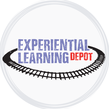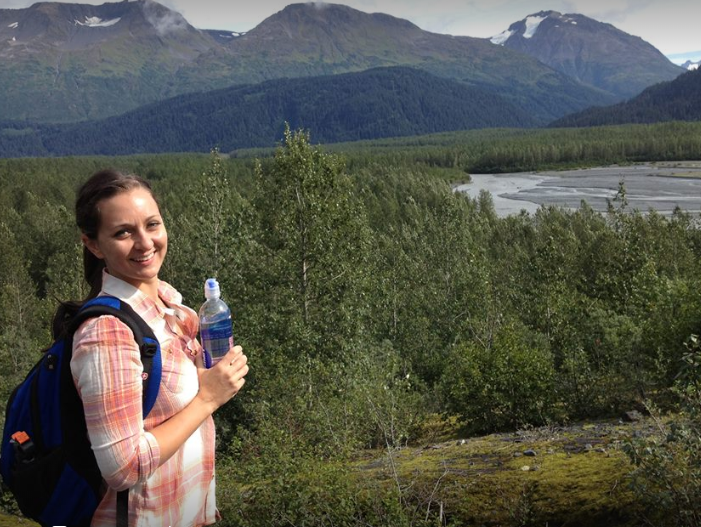|
Experiential learning resources for the innovative educator
Experiential learning and reflection go hand-in-hand. Reflection is an important characteristic of experiential learning, so as an educator with an experiential learning classroom philosophy, I make it a point to enhance learning by reflection.
I add a reflection piece to almost every learning experience that my students have, within AND beyond the walls of the classroom. Reflecting on the process, the outcomes, the content, the goals, and the skills-acquired from the experience really drive the learning experience home.
Let me give you an example:
I am heavily involved in the educational travel program at our school. I took students on a marine biology camping trip several years ago to the Florida Keys one year. A few months before the trip I began looking into campsites. Everything was booked and I panicked. I managed to find ONE campground that had an available site and booked it immediately. It was clear upon arrival why this campground was the only one with availability. In short, this campground was NOT teen-friendly. Luckily, there was a last-minute cancellation at a nearby KOA, so we were able to stay there for the rest of our trip. This was an experience, yes. But was it a learning experience? I would argue that reflecting on the experience was where the learning came in. I looked back on it, processed it, picked it apart, and used it to do better by my students for future trips. There was learning by reflection. "We do not learn from experience...we learn from reflecting on experience". -John Dewey The ability to reflect is a skill - an essential skill - not just in an educational context, but in life. Your students will need to reflect on parenting, careers, personal and professional relationships, and more. If we as educators never pondered over botched lessons, analyzed specific interactions with students, or contemplated feedback from others, we wouldn't be very good at what we do. Let's give the same sense of continuous learning and improvement that we embody in our own lives to our kids by making intentional reflection a regular and expected part of every learning experience. Reflection is an elemental characteristic of experiential learning, therefore, experiential learning activities are followed by reflection. Learners identify challenges faced in the experience, they note growth and progress, they identify their strengths throughout the experience and use those strengths as building blocks for future experiences, they determine next steps, and make goals for the future.
My advice is to start making learning by reflection habitual in your classroom or homeschool. Below you'll find a few great ways to incorporate reflection to strengthen and reinforce learning.
Develop your own reflection learning strategy. You might find some of the following learning by reflection examples more relevant or suitable for your students than others. Scroll through, feel some out, and give a few a try. How to Enhance Learning by Reflection in Your Classroom
The following is a list of ways that I add reflection to our learning day, making it habitual , and therefore expected by my students.
1) Learning by Reflection After a Given Time Frame:
I have had my students write daily reflections and quarterly reflections. They reflect to wrap up seminars or classes. They write end of the year reflections. They even reflect on their high school careers before they graduate. The idea here is that students look back on a designated timeframe in their personal and academic lives. In doing this they develop important skills that they can apply over the course of a lifetime. I frame my school year with a personal learning plan. Each student has one. They build and manage their plan, which includes interests, project ideas, personal and academic goals, and yes, reflections. My students use a personal learning plan template in the format of a digital portfolio, which is available in my shop. Take a peek at my learning by reflection template. It is an editable, digital Google Slides that my students use to reflect on a variety of learning activities and learning sessions. It is vague, so could be applied to any activity, any subject, any grade level, etc.
2) Learning by Reflection Following Experiential Learning Activities:
As I said above, my students reflect on all learning experiences. Projects, presentations, problem-based learning activities, STEM challenges, service learning experiences, science experiments, watching documentaries, reading novels are all examples of learning experiences that can (should) be followed by a reflection. If a follow-up reflection seems irrelevant or tedious, then a reflection might be necessary on your part to determine if it's a learning activity worth doing. All of my experiential learning activity resources include a reflection. Check out TPT for those resources, and follow Experiential Learning Depot for new resource alerts and updates. 3) Learning by Reflection with Educational Travel: Travel is the mother of all learning experiences. I didn't include it in #2 because it is so much more than a "learning activity". Conducting a science experiment in the lab is a cool learning experience, of course. Giving a presentation for the first time is a huge accomplishment. Team STEM challenges help learners build many essential life skills. BUT TRAVEL. Travel is all of this combined and more, especially when combined with intentional experiential learning activities such as trip-based project-based learning. I have found, in my own experience, that reflection comes naturally after travel. My students always seem to have epiphanies, not always while on the actual trip, but upon reflection long after the trip has come to an end. That is the power of learning by reflection. Download my free educational travel reflection from my shop. Many of my educational travel resources are free. 4) Learning by Reflection Following Authentic Learning Experiences: Authentic experiences are those that are relevant and are connected in some way to real-life. For example, rather than learn about habitats from a textbook, you might have students do a conference call with a wildlife field ecologist. My students were able to do this with Adelie penguin researchers all the way from Antarctica. Reflecting on such unique and consequential experiences like this not only encourages personal and academic growth, but also boosts the desire to have more experiences just as substantial. 5) Learning by Reflection After Group Work: Reflecting on group work is SO important. Rather than have students "grade" their partner(s), I have them reflect on the experience as a whole. It helps learners navigate conflicting personalities, understand the role that they played in the experience, come up with creative and effective resolutions to group conflict, etc. We all have to work side-by-side with others at some point in our lives whether we vibe with those people or not. That's the reality. The ability to analyze a group's dynamic, accept feedback from a teammate in a professional manner, DO something productive with that feedback, evaluate team progress, and modify when things aren't going according to plan, are skills that are fortified through learning and reflection. 6) Reflecting on Personal Growth: This is a really important one in my opinion. "Behavioral issues" on a high school level more often than not lead to out-of-school suspensions. This is a problem. In the case of my students, many either invited suspensions or feared them. For some, our school was their only safe place, so displacing them from the building felt wrong and ineffective. About five years ago we stopped suspending students for this reason, among others. Instead, students reflected on their "offense". They either wrote reflections or participated in a restorative justice circle, depending on the situation. The results were often very powerful. I know many homeschoolers read this blog, and although suspensions do not apply to your children, growing up does. ALL kids do things in the process of growing up that we wish they wouldn't. I'm not a child psychologist, so I'm not going to tell you how to parent, but I do suggest asking your children to reflect on those frustrating behaviors. Reflecting helps kids develop a healthy self-concept, figure out who they are and who they want to be, determine whether their relationships are healthy and positive, build self-confidence, establish a moral compass, and so much more.
I want to add one more thing before I go. Reflecting can take many forms. Not all reflections have to be written. Get to know your students and what works well for them. I had many students who needed to verbally reflect. This was especially true after travel experiences. I often had one-on-one reflection meetings with my travelers. Just do what works well for you and your students! Good luck and happy reflecting!
Check out this video for reflection inspiration!
Join our experiential learning Facebook group!
Did you know there is an experiential learning Facebook group? Check that out - Experiential Learning Community for K12 Teachers - and join in the discussion about experiential learning ideas!
Find us on social media!
Follow Experiential Learning Depot on Pinterest, Facebook, Youtube, and Instagram for more on experiential education, and check out my shop for experiential learning resources.
Looking for relevant blog posts? Look no further!
Observe. Question. Explore. Share.
0 Comments
Your comment will be posted after it is approved.
Leave a Reply. |
Blog IntentTo provide innovative educational resources for educators, parents, and students, that go beyond lecture and worksheets. AuthorSara Segar, experiential life-science educator and advisor, curriculum writer, and mother of two. Categories
All
|











 RSS Feed
RSS Feed